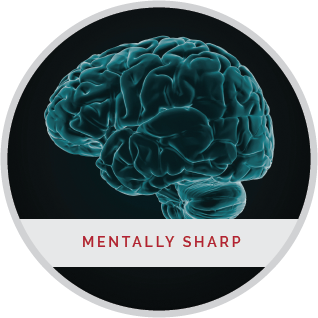
“In less than one century, life expectancy has increased by an average of 30 years in developed regions of the world. Quite suddenly, there are more people living longer in the world than ever before in human history and they are accounting for an increasingly greater percentage of the world population. Improved longevity is, at once, among the most remarkable achievements in all of human history and one of our greatest challenges. These added years can be a gift or a burden to humanity depending upon how they are used.” – Laura L. Carstensen, Founding Director
The mission of the Stanford Center on Longevity is to redesign long life. The Center studies the nature and development of the human life span, looking for innovative ways to use science and technology to solve the problems of people over 50 by improving the well-being of people of all ages.
Meeting these challenges includes changing our public policies as well as personal behavior. Redesigning long life means appreciating the unique challenges of aging, as well as the great value older people contribute to a society.
The Center aims to use increased life expectancy to bring about profound advances in the quality of life from early childhood to old age. To inspire change of this scale, the Center works with academic experts, business leaders and policy makers to target important challenges and opportunities for aging societies. By fostering dialogue and collaboration among these typically disconnected worlds, the Center aims to develop workable solutions to urgent issues confronting the world as the population ages.
Over 140 Stanford faculty members are Center affiliates. Their research foci include a broad range of topics, including behavioral economics and decision making, age-related changes in cognition, assistive robotics, the potential of stem cells, and technology developments that reduce cost and improve healthcare delivery.
The Center was founded by two of the world’s leading authorities on longevity and aging. Laura Carstensen PhD, is the founding director. A professor of psychology at Stanford, she has won numerous awards, including a Guggenheim Fellowship, and her research has been supported for more than 20 years by the National Institute on Aging. Thomas Rando MD, PhD, professor of neurology and neurological sciences, is deputy director. His research on aging has demonstrated that is possible to identify biochemical stimuli that can induce stem cells in old tissues to repair injuries as effectively as in young tissues. This work has broad implications for the fields of regenerative medicine and stem cell transplantation.
DIVISIONS & PROGRAMS
The Center has three research divisions (Mind, Mobility and Financial Security). Demographic analysis at the global, national, and community levels informs our work. The Center’s unique “launch” conferences bring together academic collaborators with business, government and non-profit leaders to find solutions to longevity challenges. The Center’s courses at Stanford foster student awareness and understanding of longevity and life-span issues. Students also work at the Center as interns, independent researchers and volunteers.
 Mind Division
Mind Division
The mission of the Mind Division is to enhance and tap the enormous human capital represented in a growing number of mature and talented older citizens. To this end, the Division aims to characterize strengths and weaknesses of the aging mind, improve decision quality in important domains of life, scale interventions that encourage engagement in stimulating environments, and improve devices that aid cognitive processing. The Division will also focus on distinguishing normal changes in cognitive aging from those related to disease so that interventions and policies are targeted appropriately. Read more
 Mobility Division The mission of the Mobility Division is to focus on challenges to physical movement across the life span. The goals of the Division are first, to address fundamental issues by supporting research in areas ranging from biology to the design of the built environment and second, to help translate the fruits of that research into products and policies that sustain or enhance mobility or develop accommodations for those individuals with limited mobility. Read more
Mobility Division The mission of the Mobility Division is to focus on challenges to physical movement across the life span. The goals of the Division are first, to address fundamental issues by supporting research in areas ranging from biology to the design of the built environment and second, to help translate the fruits of that research into products and policies that sustain or enhance mobility or develop accommodations for those individuals with limited mobility. Read more
 Financial Security Division
Financial Security Division
In an age of unprecedented longevity, a focus on lifelong individual financial security has never been more crucial. The Financial Security Center brings a unique interdisciplinary perspective to financial security issues facing our society by rethinking the perceived problems around an aging population, especially retirement planning and the need to work longer. By understanding the role that research, education and policy can play in solving these issues and looking at the problems from multiple perspectives, we will drive the dialogue forward in order to facilitate a healthier state of long-term financial security for the individual and society. Read more